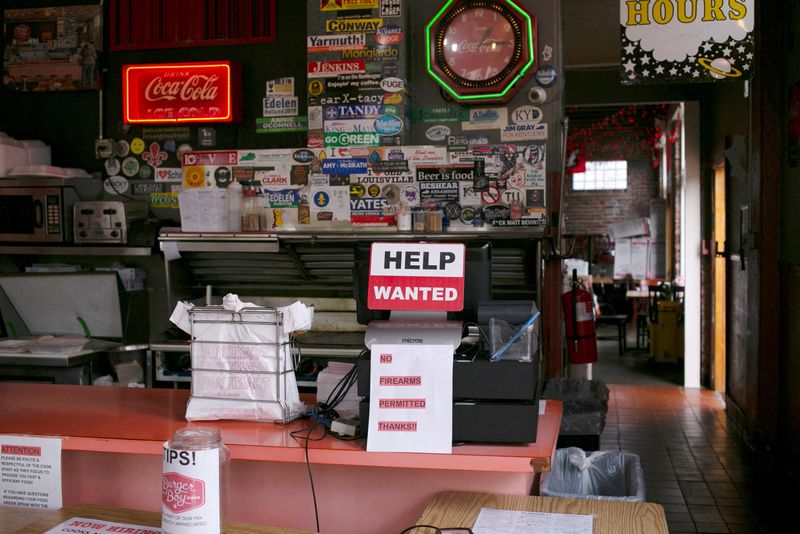WASHINGTON (Reuters) - U.S. small business confidence fell to an 11-month low in January amid persistent worker shortages and higher prices for materials, a survey showed on Tuesday.
The National Federation of Independent Business said its Small Business Optimism Index dropped 1.8 points to 97.1 last month, the lowest reading since February 2021.
Scarce workers and rising labor costs remain the main areas of worry for businesses.
Snarled supply chains as the global economy rebounds from the COVID-19 pandemic, fueled by massive stimulus from governments, have unleashed inflation. The pandemic, now in its third year, has also disrupted labor supply, making it difficult for goods to move from factories to consumers.
There were a near record 10.9 million job openings at the end of December.
The NFIB survey showed half of the 1,504 small businesses who participated in the poll reporting raising compensation. That was the highest reading in 48 years and was up 2 points from December. That corroborates to a surge in measures of wage growth tracked by the government.
About 27% of small businesses said they planned to increase compensation in the next three months, down 5 points from December, but still historically high.
Eleven percent said labor costs were their top business problem, down 2 points from December's 48-year record high reading. About 23% complained about labor quality.

Faced with rising labor costs, the share of small businesses raising average selling prices jumped 4 points to 61%, the highest reading since the fourth quarter of 1974. Price hikes were most frequent in wholesale, manufacturing, retail and construction industries.
The Federal Reserve is expected to start raising interest rates next month by at least 25 basis points to tame high inflation. Economists anticipate as many as seven rate hikes this year.